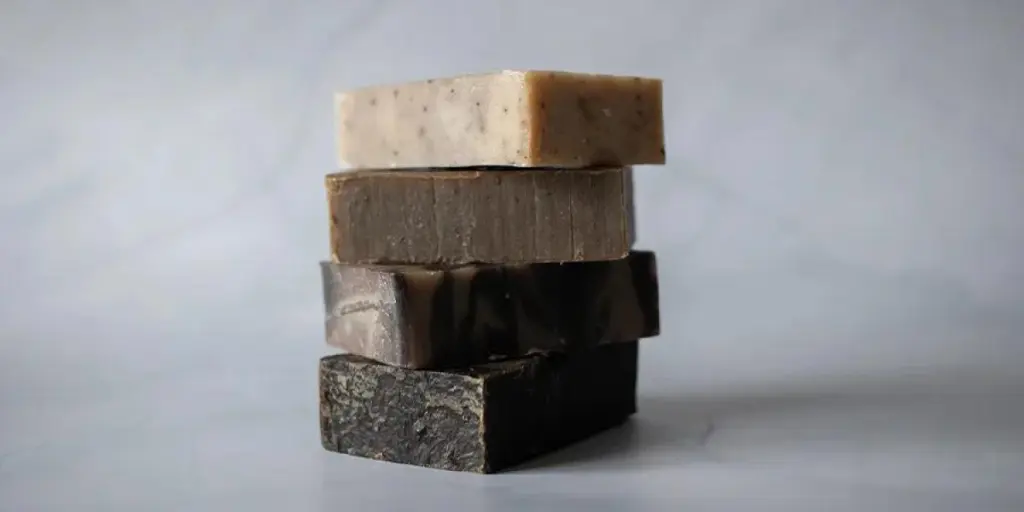Besides enhancing the pool’s visual appeal, maintaining clean water is essential to the system’s overall health and lifespan. Behind the scenes, the pool filter captures dirt, debris, and even microscopic pollutants. Picking the correct filter system isn’t merely technical; it determines how efficiently your pool works and how much effort and money you’ll need to put into keeping it clean.
There are many systems out there, and they all claim to be the best. So, you should know what makes each one unique. When operating any pool, be it a tiny backyard pool or a huge commercial installation, it is essential to strike a balance between filtration efficiency, ease of care, and long-term costs.
Read on for our overview of everything you need to know to ensure you are selecting the best pool filter systems on the market for your buyers in 2025!
Table of Contents
Pool filtration systems at a glance
Common types of pool filter systems
How these pool filter systems work
Comparing pool filter systems
How to choose the right pool filter system
Summary
Pool filtration systems at a glance

Pool filters clean, protect, and cleanse your pool water. Pool filtration removes dirt, debris, and other hazardous elements to keep water clean and attractive. A pool without effective filtration can soon build up dust, algae, and pathogens, making it unhealthy and requiring more chemical treatment.
A reliable filtration system cleans the water, reduces chemical use, and extends the life of pool equipment like pumps and heaters. Three key components make up every filtration system. The pump circulates water through the filter. The sand, cylinder, or diatomaceous earth (DE) filter removes dirt.
Sand filters are cheap, cartridge filters are easy to maintain, and DE filters best filter tiny particles. Finally, valves and lines regulate water flow by backwashing to keep the system running and clean. These elements work together to maintain your pool and offer clean, sparkly water.
Common types of pool filter systems

Here are the main pool filter systems you’ll encounter while scouting for a dependable one:
Sand filters
Sand filters are a popular and economical pool filter. As water runs over a bed of precisely graded sand, debris and impurities are trapped.
As water travels through the sand, 20–40 micron particles become caught between the grains, allowing cleaner water to return to the pool. Over time, dirt collects in the filter, requiring backwashing to remove it.
Pros: They’re cheap and easy to maintain. They survive for years with little care and feature a simple design. They’re sturdy, making them ideal for large pools and commercial use.
Cons: Sand filters aren’t as effective at screening small particles as other technologies. Frequent backwashing wastes water and reduces energy efficiency. Many pool owners find them trustworthy and cost-effective.
Cartridge filters
Cartridge filters catch dirt and particles using a pleated polyester or other filter cartridge. The fine pleats of the cartridge filter 10–20 microns of dirt, algae, and other pollutants as water runs through it. Cartridge filters don’t backwash like sand filters. Instead, the cartridge is removed and rinsed using a hose.
Pros: Cartridge filters capture tiny particles and improve water clarity better than sand filters. Since backwashing isn’t needed, they use less water and are greener. Maintenance is easy, and cartridges must be cleaned several times per season.
Cons: While easy to maintain, cartridge filters need regular cleaning and cartridge replacement, which can increase long-term expenditures. Large or high-traffic pools may require more frequent cleaning, making them unsuitable.
Cartridge filters work well for small to medium-sized home pools. Blending filtration efficiency and ease of maintenance make them suitable for homeowners who desire clear water with little effort.
Diatomaceous earth (DE) filters
DE filters are the most effective. They employ diatomaceous earth powder, a natural fossilized diatom product. The powder coats filter grids, and as water goes through them, the DE traps particles as thin as 2–5 microns, making it very effective at catching fine debris, dirt, and algae.
Pros: DE filters produce the purest water of all filtration systems. Pool owners who want the best water quality choose them since they can trap even the smallest particles. Proper care makes them durable and long-lasting.
Cons: DE filters cost more to buy and maintain than sand and cartridge filters. Replace DE powder occasionally; grid cleaning is more complicated than cartridge or sand filter cleaning. DE powder can cause respiratory issues and must be disposed of properly.
DE filters are best for high-end residential pools or pools that value clear water. DE filter systems help homeowners who invest in water quality and upkeep.
How these pool filter systems work

Pool filters clean pool water differently. In sand filters, water passes through a bed of graded sand. It travels downward, trapping trash between sand particles while screening away 20–40 micron pollutants.
Periodic backwashing removes dirt and reverses water flow to restore filter efficiency. Sand filters are robust and easy to maintain but process smaller particles less efficiently than alternative systems.
Cartridge filters use pleated polyester or other filters. Pleats capture dirt, algae, and 10–20-micron particles when water runs past them. With a higher surface area to absorb dirt, cartridge filters outperform sand filters without backwashing, saving water. Instead, remove and rinse the cartridge to clean.
The cartridge must be replaced periodically, increasing maintenance expenditures. Finally, diatomaceous earth (DE) filters use a thin powder of fossilized diatoms to coat grids for the most exact filtration. DE-coated grids catch particles as small as 2–5 microns, resulting in the purest water.
DE filters, like sand filters, need backwashing and fresh DE powder after each cleaning. They filter clearer water but are harder to maintain and cost more upfront.
Comparing pool filter systems

Here’s how these pool filter systems stack up against each other:
Efficiency
Each pool filter system has pros and cons when compared for efficiency. For the purest water, diatomaceous earth (DE) filters are the most effective, screening particles as fine as 2–5 microns. Next in efficiency are cartridge filters, which capture 10–20 micron particles.
Pleated filters have a higher filtration surface area than sand filters, improving water clarity. Sand filters are reliable yet inefficient, removing only 20–40 micron particles. For fine filtration pools in dusty or algae-prone environments, sand filters may need chemical treatments to attain the same water clarity as DE or cartridge systems.
Maintenance requirements
Sand filters are easiest to maintain, mostly backwashing. Backwashing, which reverses water flow to remove debris, is easy but requires regular maintenance, especially in busier pools. This wastes water and raises utility bills.
Backwashing is unnecessary with cartridge filters, saving water. You rinse the cartridge a few times a season when it gets dirty. Depending on use, the cartridge must be replaced every 1–2 years, adding to long-term upkeep.
After cleaning, DE filters require backwashing and fresh DE powder, making maintenance more complicated. This procedure is more complex but yields the finest water quality. Cleanup and disposal of DE powder are also necessary.
Cost analysis
Sand filters are popular for home and commercial pools because they have the lowest upfront and operational costs. They cost the least to buy and maintain, but regular backwashing can raise water rates.
Both upfront and maintenance costs are mid-range for cartridge filters. Though more expensive than sand filters, cartridge filters conserve water and are easier to clean, but refilling the cartridges increases long-term costs.
DE filters are the most expensive to buy and maintain. DE powder must be replenished periodically, and filter grids are costly. The higher investment may be justified due to the notable water clarity DE filters offer.
Lifespan and durability
Sand filters are the most durable, lasting 5–7 years or more, with adequate maintenance. Their simple form and durable construction make them perfect for big or high-use pools. Though filter housing can last 3–5 years, cartridge filters need to be replaced every 1–2 years.
DE filters function best but are more fragile and require more maintenance. Filter grids may need replacing every several years. DE filters can last longer than sand or cartridge filters if properly maintained but require more frequent part replacement.
How to choose the right pool filter system

Whether the pool is for commercial or domestic usage, your budget, your preferences for water quality, environmental conditions, and climatic considerations are all important variables to consider when choosing the correct pool filter system.
Residential vs. commercial use
Due to the lower demand, simpler and less expensive filter systems, like sand or cartridge filters, can sometimes be sufficient for residential pools. Although cartridge filters offer superior filtration effectiveness with less maintenance, sand filters are more commonly used for home pools because of their inexpensive cost and ease of maintenance.
Cartridge filters are a great compromise between water waste and homeowner convenience. Public or commercial pools, on the other hand, get a lot more use and necessitate a more powerful filtration system to keep the water clear.
Clean water is essential for public pool health, so diatomaceous earth (DE) filters—which can catch particles as small as 2-5 microns—are the most reliable here. Commercial settings may also choose large sand filters because of their cheap maintenance costs and longevity, even if they may not provide the same level of clarity as DE filters.
Budget constraints
Choosing a pool filter system requires careful consideration of your budget. Sand filters are the most popular choice because of their low maintenance costs, long lifespan, and low initial cost. The downside is they may increase water consumption because of their inefficiency in filtering fine particles and the frequency with which they need backwashing.
Despite being more expensive initially than sand filters, cartridge filters are a great long-term investment for frugal homeowners due to the water and effort they save on upkeep. Those who value pure water, particularly in business settings, may consider investing in DE filters because of their exceptional purity.
Because of their water-efficient design, cartridge filters can save money on water bills in the long run. Still, DE filters can be expensive to maintain because they must be refilled with powder and grids more often.
Water quality and clarity requirements
The water quality heavily influences the choice of filter. Because they can capture the tiniest particles, DE filters are ideal for situations when having absolutely clear water is of the utmost importance.
When it comes to public or luxury home pools, where cleanliness and aesthetics are essential, these filters provide the maximum clarity. Cartridge filters offer a middle ground for homeowners who need cleaner water but don’t require the most advanced system.
They still give outstanding water quality and may capture finer particles than sand filters, which is great for pools that don’t require as intense filtration. For most applications, sand filters will do the trick, but they may leave behind some small particles and may need further chemical treatments to keep the water clear.
Environmental considerations
Pool owners are increasingly considering the environmental impact of their selections. This is particularly true in areas where conserving water is a top issue. Because they don’t need backwashing, cartridge filters save a lot of water in the long run, making them ideal in this field.
This method is efficient and kind to the environment because it uses removable cartridges that can be cleaned and reinserted. On the other hand, sand filters produce water waste due to the frequent backwashing required to remove the trapped particles.
Backwashing is also necessary for DE filters, which use less water on average than sand filters. However, you must be careful when handling DE powder to avoid damaging the environment.
Climate and pool usage
The filter system designed for your pool might be affected by weather and how often you use it. To handle the increased load of impurities, a higher-capacity system, like a big sand filter or DE filter, may be useful for heavily used pools and those in dusty or debris-filled areas.
A sturdier filter system will keep the water clean with less maintenance for pools used daily or locations with regular dust storms. While cartridge filters may be adequate in milder regions and with light use, they may need to be cleaned or replaced more frequently in harsher environments.
Summary
The best pool filter system helps to ensure clean, safe, and pleasant pool water. Knowing how different systems vary in efficiency, maintenance, cost, and durability will help you choose the right one, whether operating a business facility or a residential pool.
Sand filters are inexpensive, while cartridge filters are simple and environmentally friendly, and DE filters are best at removing impurities from water. Browse Chovm.com‘s vast inventory for various excellent quality pool filter systems, and shop for all of your pool supplies today!




